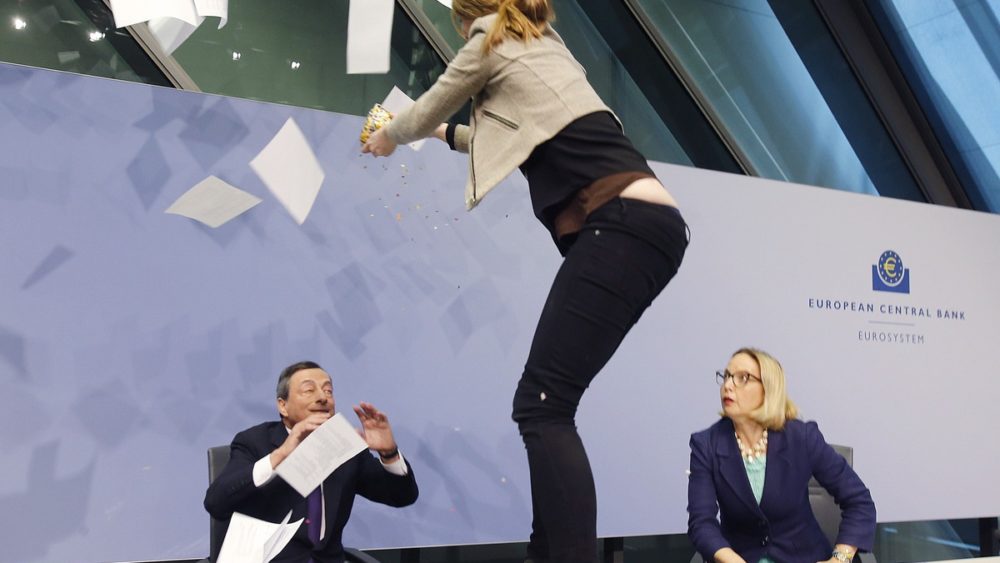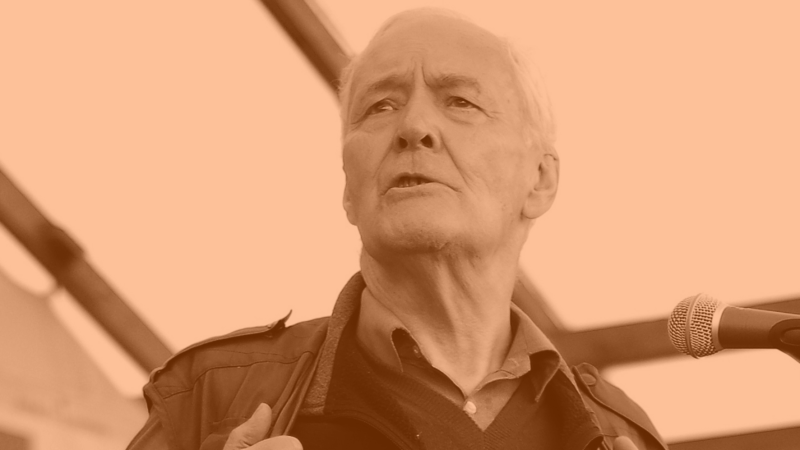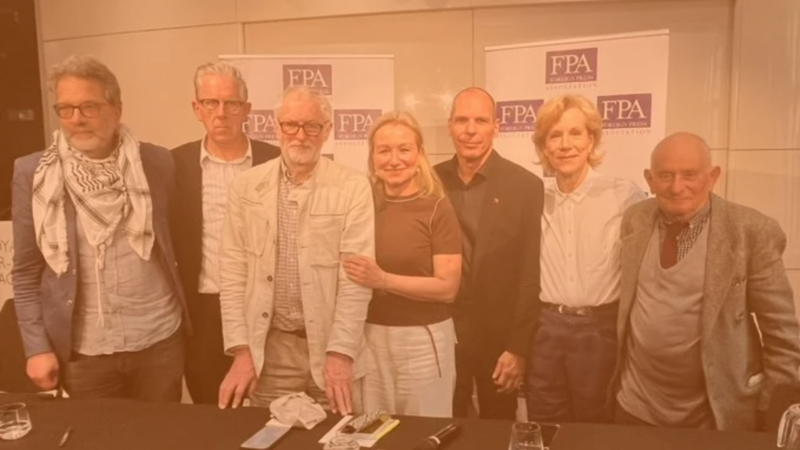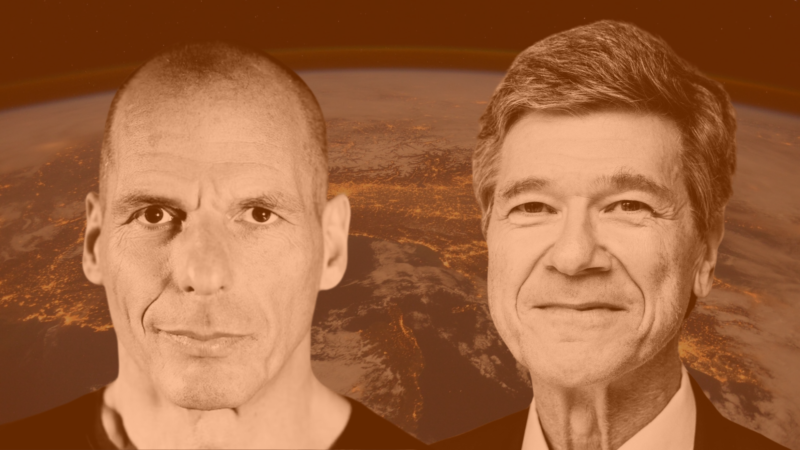Slavoj Žižek
Sometimes faces become symbols – not of the strong individuality of their bearers but of the anonymous forces behind them. Was not the stupidly smiling face of Jeroen Dijsselbloem, president of the Eurogroup, the symbol of the EU’s brutal pressure on Greece? Recently, the international trade deal TTIP acquired a new symbol: the cold face of EU trade commissioner Cecilia Malmström who, when asked by a journalist how she could continue her promotion of TTIP in the face of massive public opposition, responded without shame: “I do not take my mandate from the European people.” In an unsurpassable act of irony, her family name is a variation of maelstrom.
Now a third anonymous face has emerged: Frans Timmermans, the First Vice-President of the European Commission, who, on December 23 2015, scolded the Polish government for adopting a new law which poses a threat to the democratic constitutional order since it subordinates constitutional court to the authority of government. Furthermore, Timmermans condemned the new media law which was rushed through Poland’s parliament a couple of weeks: the law will enable the parliament to immediately sack all executives at the country’s public television and radio companies and to appoint their replacements. The ruling party justifies this law as necessary to stifle unfair criticism of its actions, while the opposition decries it as a severe limitation of the freedom of the press. In an immediate and sharp reply, the Polish side warned Brussels “to exercise more restraint in instructing and cautioning the parliament and the government of a sovereign and democratic state in the future.”
From the standard Left-liberal view, it is of course inappropriate to put these three names into the same series: Dijsselbloem and Malmström personify the pressure of the Brussels bureaucrats (without democratic legitimization) on states and their democratically-elected governments, while Timmermans intervened to protect basic democratic institutions (independence of courts, free press) from a government that overstepped its legitimate powers. However, although it may appear obscene to compare the brutal neoliberal pressure on Greece with the justified criticism of Poland, did the Polish government’s reaction also not hit the mark? Timmermans, a EU administrator without any clear democratic legitimization, exerted pressure on a democratically elected government of a sovereign state.
Do we not encounter a similar dilemma in today’s Germany? When I was recently answering questions from the readers of Sueddeutsche Zeitung about the refugee crisis, the question which attracted by far the most attention concerned precisely democracy, but with a rightist-populist twist: when Angela Merkel made her famous public appeal inviting hundreds of thousands into Germany, which was her democratic legitimization? What gave her the right to bring such a radical change to German life without democratic consultation? My point here, of course, is not to support anti-immigrant populists, but to clearly point out the limits of democratic legitimization. The same goes for those who advocate radical opening of the borders: are they aware that, since our democracies are nation-state democracies, their demand equals suspension of democracy – a gigantic change should be allowed to affect a country without democratic consultation of its population?
And does the same not hold for the calls for transparency of the EU decisions? Since in many countries the majority of the public was against the Greek debt reduction, rendering EU negotiations public would make representatives of these countries advocate even tougher measures against Greece… We encounter here the old problem: what happens to democracy when the majority is inclined to vote for racist and sexist laws? I am not afraid to draw the conclusion that emancipatory politics should not be bound a priori by formal-democratic procedures of legitimization. People quite often do NOT know what they want, or do not want what they know, or they simply want the wrong thing. There is no simple short-cut here, and we can well imagine a democratized Europe with much more engaged citizens in which the majority of governments is formed by anti-immigrant populist parties.
Leftist critics of EU thus find themselves in a strange predicament: while they deplore the »democratic deficit« of the EU and propose plans to make more transparent the decision-making in Brussels, they support the »non-democratic« Brussels administrators when they exert pressure on (democratically legitimized) new »Fascist« tendencies. The context of these impasses is the Big Bad Wolf of the European liberal Left: the threat of new Fascism embodied in anti-immigrant Rightist populism. This scare-crow is perceived as the principal enemy against which we should all unite, from (whatever remains of) the radical Left to mainstream liberal democrats (including EU administrators like Timmermans). Europe is portrayed as a continent regressing towards a new Fascism which feeds on the paranoiac hatred and fear of the external ethnic-religious enemy (mostly Muslims). While this new Fascism is directly predominant in some post-Communist East European countries (Hungary, Poland, etc.), it is also getting stronger and stronger in many other countries where the view is that the Muslim refugees invasion poses a threat to European legacy.
But it this Fascism really Fascism? The term “Fascism” is all too often used as an excuse to avoid detailed analysis of what effectively goes on. The Dutch Rightist populist politician Pim Fortuyn, killed in early May 2002, two weeks before elections on which he was expected to gain one fifth of the votes, was a paradoxical symptomal figure: a Rightist populist whose personal features and even (most of his) opinions were almost perfectly “politically correct”: he was gay, had good personal relations with many immigrants, with an innate sense of irony, etc. – in short, he was a good tolerant liberal with regard to everything except his basic political stance: he opposed fundamentalist immigrants because of their hatred towards homosexuality, women’s rights, etc. What he embodied was thus the intersection between Rightist populism and liberal Political Correctness – perhaps, he had to die because he was the living proof that the opposition between Rightist populism and liberal tolerance is a false one, that we are dealing with the two sides of the same coin.
Furthermore, many Leftist liberals (like Habermas) who bemoan the ongoing decline of the EU seem to idealize its past: the “democratic” EU the loss of which they bemoan never existed. Recent EU policy is just a desperate attempt to make Europe fit for new global capitalism. The usual Left-liberal critique of the EU – it’s basically OK, just with a “democratic deficit” – betrays the same naivety as the critics of ex-Communist countries which basically supported them, just complaining about the lack of democracy: in both cases, the “democratic deficit” was a necessary part of the global structure.
Obviously, the only way to counteract the “democratic deficit” of global capitalism would have been through some trans-national entity – was it not already Kant who, more than two hundred years ago, saw the need for a trans-nation-state legal order grounded in the rise of the global society? “Since the narrower or wider community of the peoples of the earth has developed so far that a violation of rights in one place is felt throughout the world, the idea of a law of world citizenship is no high-flown or exaggerated notion.” This, however, brings us to what is arguably the “principal contradiction” of the New World Order: the structural impossibility of finding a global political order which would correspond to global capitalist economy. What if, for structural reasons and not only due to empirical limitations, there cannot be a world-wide democracy or a representative world government? The structural problem (antinomy) of global capitalism resides in the impossibility (and, simultaneously, necessity) of a socio-political order that would fit it: the global market economy cannot be directly organized as a global liberal democracy with worldwide elections. In politics, the “repressed” of the global economy returns: archaic fixations, particular substantial (ethnic, religious, cultural) identities. This tension defines our predicament today: the global free circulation of commodities is accompanied by the growing separations in the social sphere. While commodities circulate more and more freely, people are kept apart by new walls.
Does this mean that we should by-pass the topic of democratising Europe as a blind alley? On the contrary, it means that, precisely because of its central significance, we should approach it in a more radical way than just demanding more open democratic procedures. A whole series of difficult questions is to be raised: how to effectively counteract ideological brain-washing by mass media? How to enable people to be properly acquainted by crucial choices and decisions obfuscated by cultural wars, decisions about TTIP and other half-secret agreements? Etc. The problem of democratizing Europe thus quickly turns into a more substantial one: how to transform the basic coordinate of our social life so that democracy becomes possible.
Do you want to be informed of DiEM25's actions? Sign up here















